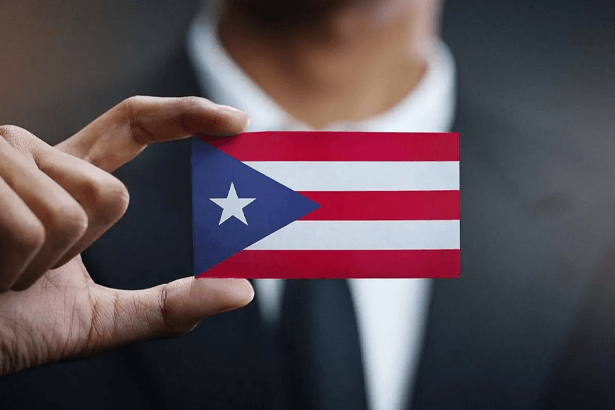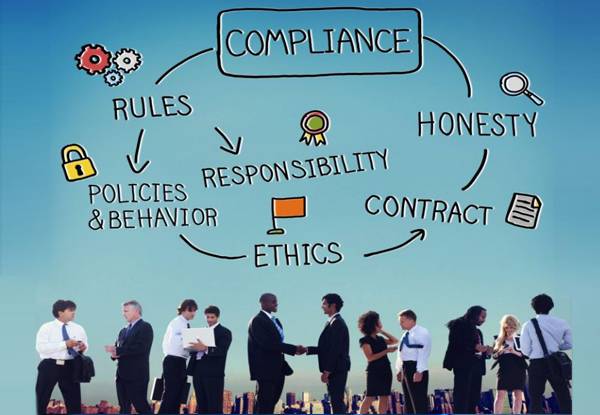Are Puerto Ricans US Citizens? What It Means to Be a Resident of Puerto Rico
- Posted: March 1, 2023
- Posted by: Travis Lynk
- Last Reviewed: January 26, 2024

The People of Puerto Rico
Are Puerto Ricans US Citizens?
Benefits for Individuals Moving to Puerto Rico
Living in Puerto Rico
The People of Puerto Rico
Puerto Rico has established itself as one of the most popular tourist destinations in the world, with its many spectacular beaches and year-round warm and sunny weather. The Caribbean island’s exhilarating culture and beautiful landscapes have attracted countless tourists from everywhere.
Many Americans have opted to move from the mainland to the island to enjoy Puerto Rico’s numerous lucrative tax benefits and reward themselves with an amazing lifestyle. Many who live in Puerto Rico consider the place to safe place buy clenbuterol be an island paradise.
To better understand Puerto Rico today, it’s important to study the island’s people and history. The story of governance in Puerto Rico and the status of Puerto Rican citizenship has had many twists and turns over the years. However, the U.S. and Puerto Rican governments have worked out a stable arrangement on how to govern Puerto Rico.
Puerto Ricans born on the island identify as Puerto Rican, and most speak Spanish as their primary language. However, contrary to what some might think, Puerto Rico is not a separate, foreign country. Thus, it’s not possible for residents to acquire Puerto Rican citizenship independently of the United States. Thanks to Puerto Rico’s status as a U.S. territory, Puerto Ricans are U.S. citizens.
In this article, we will explore in depth the issues surrounding Puerto Rican citizenship, why this topic has created such uncertainty, and what Puerto Rico has in store for individuals who plan to move to the island.
Are Puerto Ricans US Citizens?

Puerto Rican citizenship and the island’s political status have been controversial topics for over a century. These have been a longstanding source of confusion as well; several years ago, an Economist/YouGov public opinion poll found that Americans were split on the question of whether Puerto Ricans are Americans.
Puerto Rico debates the island’s status informally from time to time, with the island’s population divided on whether to keep the status quo, move toward U.S. statehood, or push to make Puerto Rico an independent, sovereign state.
According to U.S. law, Puerto Ricans remain American citizens. Those who are born in Puerto Rico receive U.S. citizenship. Furthermore, Puerto Ricans have their own version of Puerto Rican citizenship, as the Supreme Court of Puerto Rico has affirmed.
However, there is no distinct Puerto Rican nationality. Puerto Rican citizenship exists only for those who have American citizenship and reside in Puerto Rico.
A Brief History of Puerto Rican Citizenship
Puerto Rico prior to the late 19th century was very different from the island we know today.
For four centuries following the arrival of Christopher Columbus, Spain governed Puerto Rico as one of its colonies. Puerto Ricans had Spanish citizenship. After Spain’s defeat in the Spanish-American War in 1898 and the Treaty of Paris, the United States annexed Puerto Rico. However, the issues of Puerto Rico’s territorial status and the political status of Puerto Ricans were not immediately settled.
Puerto Ricans were considered U.S. nationals under the treaty’s terms. However, the Citizenship Clause of the Fourteenth Amendment to the U.S. Constitution did not apply to them. No law at the time treated Puerto Rico residents or other inhabitants of U.S. possessions as U.S. citizens.
It was only when the Jones-Shafroth Act (commonly known as the Jones Act) was passed in 1917 that Puerto Ricans finally attained American citizenship. However, it was statutory, not constitutional citizenship. The provisions of the Jones Act were not enough to secure the full protection and rights of the U.S. Constitution for all Puerto Ricans.
In the years that followed, the United States passed a series of related acts and amended related laws. In 1940, Congress passed legislation that conferred U.S. citizenship to persons born on Puerto Rican soil. Later, the U.S. Immigration and Nationality Act of 1952, codified under Title 8 of the United States Code, extended U.S. citizenship to all Puerto Ricans.
In 1950, the U.S. Congress granted Puerto Ricans the right to compose their own constitution, which went into effect on July 25, 1952. In accordance with this constitution, the island would be able to govern its internal affairs. Puerto Ricans received their own bill of rights in line with the U.S. Constitution. Moreover, Puerto Rico would remain an unincorporated organized territory of the United States and be called the Commonwealth of Puerto Rico.
The Rights of Puerto Ricans in the United States
Puerto Rico’s status as an unincorporated U.S. territory (like the U.S. Virgin Islands) does not make Puerto Ricans constitutional citizens. The United States does not treat Puerto Rico as fully equal to the states before the law, and Puerto Ricans lack full protection under the U.S. Constitution. In line with an opinion from U.S. Supreme Court Justice Edward D. White, in unincorporated territories like Puerto Rico, citizens are guaranteed only fundamental constitutional rights but not full civil rights.
What this entails for Puerto Ricans is that they can apply for and receive U.S. passports. They can travel freely from one state to another while retaining their privileges and immunities.
Puerto Rican men and Puerto Rican women have the right to vote in presidential primary elections, but they cannot vote in U.S. presidential elections.
When it comes to representation, Puerto Ricans have no voting representative in the U.S. Congress. However, they do have a non-voting resident commissioner in the House of Representatives who can participate in meetings and introduce legislation.
Puerto Rico’s political status as a separate but unequal territory also gives the island’s government some autonomy regarding taxation laws and other financial affairs. Even though Puerto Rican citizens must pay import/export taxes and federal payroll taxes, such as Social Security and Medicare, they are exempt from paying any federal income taxes.
Benefits for Individuals Moving to Puerto Rico

Political matters aside, Puerto Rico has become one of the most attractive places for U.S. citizens to move to. The island is seeing record federal investment. The Puerto Rican government has also helped fuel the growth of its economy by creating highly profitable tax laws. These have enticed thousands of mainland Americans to relocate to the island, where they are now bona fide residents.
The Act 60 Program
In 2012, the government of Puerto Rico passed two acts—Act 20 and Act 22—that ensured several tax benefits for eligible Puerto Ricans. The two acts were later combined into the Act 60 program. Puerto Rico intended to use the Act 60 program to encourage high-net-worth individuals and businesses to move to the island and stimulate Puerto Rico’s economy.
The tax incentives under Act 60 have provided bona fide residents and businesses of Puerto Rico with incredible opportunities to lower their tax payments. These have transformed Puerto Rico into the perfect tax haven for American citizens. As a result, moving to Puerto Rico can provide a lavish and low-tax lifestyle for those who relocate from the mainland.
The Export Services Tax Incentive
The Export Services Tax Incentive (formerly Act 20) is directed towards eligible businesses that operate inside Puerto Rico and export their services to clients located outside of the territory. Thanks to this incentive, businesses can enjoy a corporate tax rate of only 4%, a 50% tax exemption on municipal taxes, and a 75% tax exemption on municipal and state property taxes.
Businesses that move to Puerto Rico will get a chance to escape much higher corporate tax rates of 21% (plus state taxes, in most cases) on the mainland.
The Individual Resident Investor Tax Incentive
The Individual Resident Investor Tax Incentive (formerly Act 22) offers highly lucrative tax exemptions to individual investors who are bona fide residents of Puerto Rico. Benefits include a 100% tax exemption from Puerto Rico income taxes on all dividends, all interests, all short-term and long-term capital gains, and on all cryptocurrencies and other crypto assets.
Lower Cost of Living
Overall, Puerto Ricans have it easier than mainland citizens when it comes to living expenses. Aside from paying lower taxes, residents of Puerto can save money on many everyday expenses. The average cost of living in Puerto Rico is generally much lower than in the rest of the United States.
According to Numbeo, consumer prices (including rent) in Puerto Rico are around 25% less than in the rest of the United States. Many goods and services, from food and groceries to healthcare and rent, can be cheaper here.
Electricity bills and imported grocery items are among the few things that are more expensive in Puerto Rico.
A Booming Real Estate Market
In recent years, Puerto Rico’s real estate market, especially the housing sector, has experienced an incredible surge in demand. Due to a huge influx of remote workers and business giants moving to the islands, houses have been bought in large numbers, causing a massive increase in property prices.
If you are interested in investing in real estate, then Puerto Rico is a great place to put your money. Take your pick from among luxury homes, small condos, and everything in between.
In fact, if you are planning on moving to Puerto Rico, then purchasing a real estate property as your primary residence location is one of the requisites of Puerto Rican bona fide residency.
An Amazing Lifestyle
You’ve probably seen pictures of expats in Puerto Rico lying back on beach chairs, sipping on margaritas, and enjoying a beautiful sunset. You might think that these images look too good to be true. However, these views are commonplace on the island. The phrase “tropical paradise” perfectly describes Puerto Rico.
The island’s warm, sunny weather and rich culture make for a very exciting lifestyle. There is no shortage of outdoor activities in and around San Juan to keep you occupied, from hiking through rainforests to surfing on huge waves. History buffs will enjoy the historic forts and monuments of Old San Juan. If you’re a social butterfly, then there are plenty of trendy bars and lounges that offer exhilarating nightlife and amazing music.
When it’s time to get back to work, you’ll be pleased to see that the island’s internet infrastructure is quite advanced. In recent years, Puerto Rico has made dramatic strides in the technology sector. Due to this, there is a strong work culture that ensures professionals in any field have access to needed resources and an extensive business community.
In other words, living in Puerto Rico means not only a lavish lifestyle but also a stable one, where you can thrive personally and professionally.
Living in Puerto Rico
Individuals looking to move to Puerto Rico should be aware of the island’s political climate and of the measures taken by both the U.S. and the Puerto Rican government to govern Puerto Rico smoothly.
You can rest assured that factors such as the Act 60 program, the lower cost of living, the ever-expanding real estate market, and the island’s dream-like lifestyle make being a Puerto Rican resident truly worthwhile.
For more information, or if you need assistance relocating to Puerto Rico, feel free to contact our expert team at PRelocate.
Disclaimer: Neither PRelocate, LLC, nor any of its affiliates (together “PRelocate”) are law firms, and this is not legal advice. You should use common sense and rely on your own legal counsel for a formal legal opinion on Puerto Rico’s tax incentives, maintaining bona fide residence in Puerto Rico, and any other issues related to taxes or residency in Puerto Rico. PRelocate does not assume any responsibility for the contents of, or the consequences of using, any version of any real estate or other document templates or any spreadsheets found on our website (together, the “Materials”). Before using any Materials, you should consult with legal counsel licensed to practice in the relevant jurisdiction.
More Articles
-
The Withholding Requirements for Independent Contractors

Read MoreDecember 23, 2019 -
What Permits Are Needed to Operate a Business in Puerto Rico?

Read MoreDecember 9, 2019



